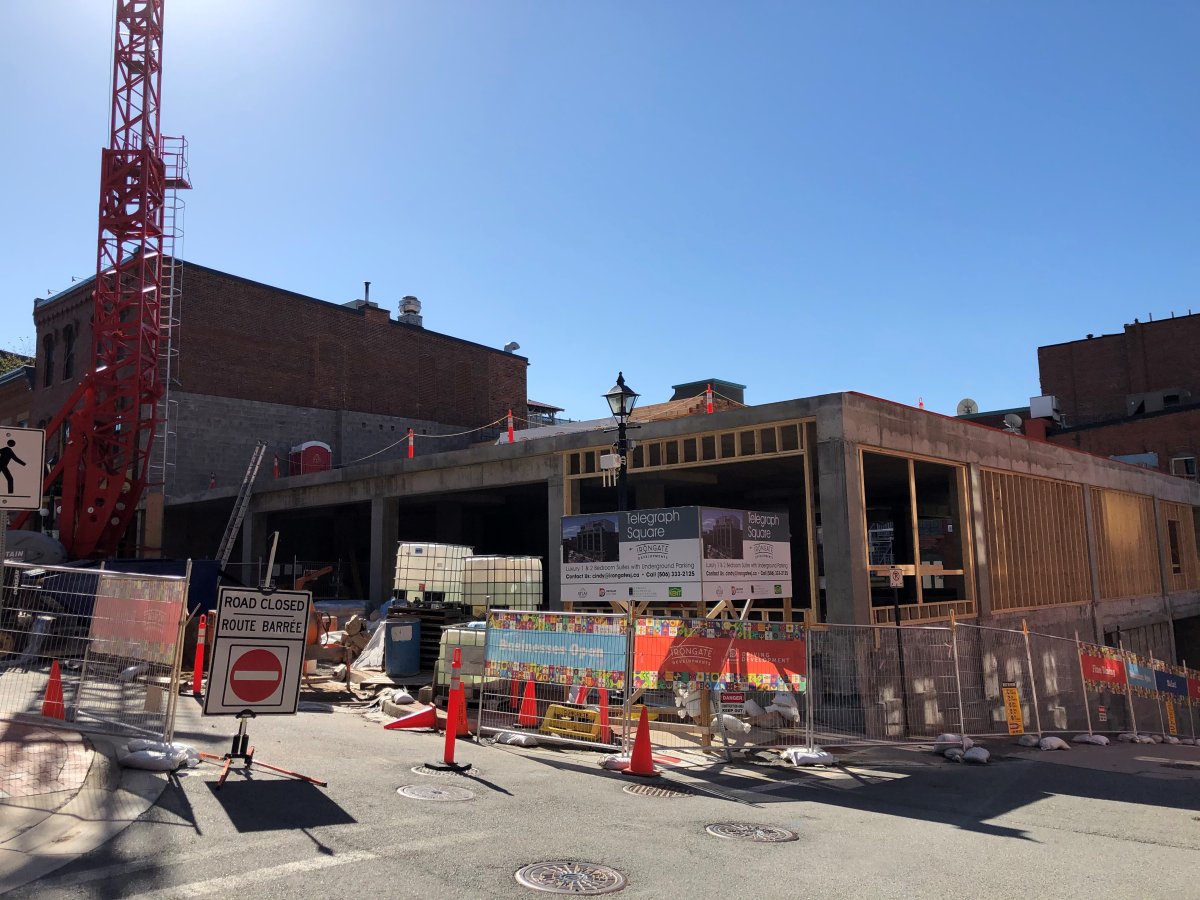Saint John Mayor Don Darling is questioning the math used by Service New Brunswick that gave his city very little tax base growth for 2021.

Service New Brunswick’s completed property valuations for the city of Saint John, based on property tax assessments, showed only $8.3 million in growth.
Comparatively, Fredericton ($165.5 million) and Moncton ($149.9 million) were much higher, as were the growth figures of more than a dozen other communities.
Darling said the 0.12 percent growth means Saint John’s tax base has increased by less than one per cent per year, on average, for the last five years.
But he said the numbers don’t match what is happening in Saint John.
READ MORE: New Brunswick mayors say there are no more excuses to avoid municipal tax reform
The city announced last month construction activity had reached ten-year highs in both June and July, with a near-record $75 million in construction permits being issued by the end of July.
Darling said he’s hearing stories of a hot real estate market, with properties selling for record prices.
“But yet when you dig into some of those files, you’re seeing the properties being assessed at fifty per cent of their value, 57 per cent of their value or less,” Darling said. “We have more questions than we have answers, and our hands are not on the steering wheel. This is a provincial responsibility.”

The CEO of The Chamber Saint John Region said he was surprised as well.
David Duplisea said lower assessments can boost business in the community, but there’s a downside, too.
“There is the potential that it could discourage investment if these property valuation assessments are not correct,” Duplisea said. “If they’re artificially low, that could discourage the value of the properties that are here for resale.”
Both Darling and Duplisea say this is the latest example of the need for municipal tax reform.
Premier Blaine Higgs reiterated his government’s commitment to tackling the issue during the September provincial election campaign.
“The tax assessment system is broken,” Darling said. “The taxation system is sixty years old and needs to be completely overhauled and we have those commitments from this premier and his government, and we just want to get at it.
“We want to get at this work.”
READ MORE: New Brunswick cities want more as Ottawa announces expedited gas-tax fund payments
Duplisea said there is concern over the methodologies behind the Service New Brunswick figures.
“We see lots of indicators of growth and construction signs going on in the city,” Duplisea began. “And, unfortunately, that doesn’t seem to be reflected in the assessment value.”
Service New Brunswick spokesperson Valerie Kilfoil declined to comment about its findings and how it calculated them, but she did say a meeting is scheduled with Saint John city staff on Friday to run through the numbers and offer clarity. She said more information will be available after the meeting.
Kilfoil stressed that the meeting is not “special,” or out of the ordinary, but rather an annual follow-up process with communities around the province to explain the figures and address any concerns.




Comments